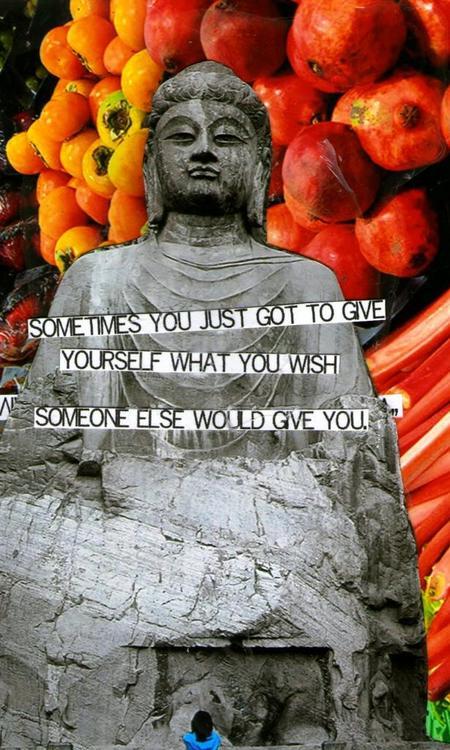Thursday, August 21, 2014
goals
ED Recovery - Taking Care of You
In our recovery from Eating Disorders one of the things we will need to learn to do is to find better ways to cope. We have learned through the process of our Eating Disorders that these behaviors were good "emotion blockers." We've discovered, even if subconsciously, that it is easier to think about food, not eating, eating too much, what we won't or will eat, how many calories we just had or will avoid, etc., than it is to deal with our feelings and emotions.
- Writing...
Keeping a journal is a great way to cope with daily stresses of life. To sit and write your feelings and emotions, your fears and dreams, about the things that are hurting you or making you angry, is to begin to understand and accept these feelings as your own. Through writing we can gain a better understanding of what we are truly feeling, and from there begin to express these emotions to others and to heal from them.
Learning to find better ways to cope is not easy. We may have many years behind us of living with this negative coping mechanism. Don't expect miracles overnight, but practice self affirmation. Telling yourself everyday, out loud, "I will learn better ways to cope... I can recover" will set you in a positive mindset and with practice you will begin to believe it.
- Doodling, Sketching
Even if you have never considered yourself the artistic type, doodling and sketching can be great ways to help relieve stress. Think of when you were a child, before your inhibitions came into play and how you could fingerpaint, color in your coloring book, draw smiley faces on notes to friends.... doodle while you talk with people on the phone, take time out to sit and sketch pictures of your dreams, and don't worry how you think they look artistically. Enjoy the time for yourself and find expression in what you create. Buy a coloring book - you'll notice how much tension can be relieved from a little peaceful time to yourself coloring.
- Communication
This will be the hardest one for a lot of us. Begin practicing at home in front of your mirror... and then with people you are closest to... friends, a spouse, your support group. Learning to live in the moment and express the emotion you are feeling will help to give you less of a need to cope with it later. With low self-esteems it is often hard to remember that we deserve to feel things, but we do! You've a right to any emotion you experience and to express it to the person hurting you, making you angry, frustrating you or even making you happy.
- Make a List
Write down what you are feeling and what caused you to feel that way (the emotions, the people, the actions, the environment, etc.) and write down how you are coping with them presently... Then, come up with a better plan for next time and write it down! Keep the list handy, write your self-affirmations ("I am a good person", "I love myself") on a piece of paper or index cards, along with coping alternatives and grounding methods as reminders of your own choice for recovery, and to help you along the way.
- Take Time Out
Don't be afraid to take time for you. Take a class in something you've wanted to, learn to play a musical instrument, begin writing in a journal every day, drop the kids off at a friend's and go to a movie... do the things you want to do. Don't be afraid to say no to people asking favors of you and don't be afraid to say "hey, I deserve some time to myself." A great way to start is to turn the phone off for an hour a week and do something that is totally about you, whether it be to play a game of solitaire or to write a letter to a long lost friend. Just make it something positive for yourself. You deserve it.
Sunday, July 27, 2014
triggers and relationships
last night my brother's friend said something very triggering. i was trying to get the three boys out of my room (i don't need a reason here, but if you think i do, they were making a huge mess and screaming) and one, let's call him K, said "you act like we're trying to rape you"
what. the. fuck.
in what world is that okay? in what world is it okay to say "you just got raped" when you tell a joke at the expense of somebody else?
i wanted to cut but i didn't. so that makes ten days clean.
part two of this post: relationships
i yell at my mom. she yells back. i say something hurtful. she says something even more hurtful. a screaming match ensues, at the end of which i either end up in the hospital or at my grandparents house. i'm glad to say this one didn't end in the hospital. my grandma comforted me for over an hour, for which i am grateful, but i'm still in tears. even when i asked my grandpa to make me eggs. i am watching adult swim, so i feel a little better. my grandma believes me that i thought i was pregnant because i was sick, and not because i had sex, but my grandpa doesn't. it's a lie anyway, but don't tell them that. i've been off my meds for a week because of the pregnancy scare. that's what started this screaming match. i yelled at my mom for never making my brother go to the hospital but i have to go every time i fucking breathe, i only did it because i was unstable. i've been off my abilify and prozac for a week.
residential and pregnancy scares
also, this is day 9 of my pregnancy scare.
i can't have a baby. not because it'll fuck up my future, because i have none, but because it'll fuck up my kidneys. i've had 3 negative results so i'm a little relieved but i'm still scared. i missed my period, but what if it's just a little late? it's never regular.
PS: 10 days free of self harm
Wednesday, July 16, 2014
Goal Setting
When Should You Set Goals?
The Logical Thought Process Behind Any Goal
- I can’t speak French. The reason for this is because there is no real benefit to me knowing the language, beyond the pleasure of simply knowing it. Whilst I would like to speak French fluently, the time and effort investment it would cost is simply not worth it to me.
- I can use the WordPress blogging platform. I hadn’t even heard of it 15 months ago, and now I get paid to write for WordPress-related blogs. This blog is built on the WordPress platform. It was definitely worth my time and effort investment to learn to use WordPress.
Knowing When a Goal is Worth it
Most of the time, our brain does a decent job of performing subconscious mental gymnastics and presenting us with the requisite level of willpower relating to any particular task (which may or may not be the required amount).I use the words “most of the time” very deliberately, because there is a key factor that can skew our internal willpower calculator (as I have just coined it) - ignorance.I don’t mean ignorance in a negative sense – I simply mean a full lack of understanding of the benefits and/or required investment (whether that be intellectual, physical, emotional, financial, or any combination of the above).Say for instance my brain doesn’t give me the required willpower to rock six pack abs because it simply doesn’t have faith. My brain doesn’t believe that six pack abs are possible without exerting more effort than the benefits I would gain from strutting my fine self up and down random beaches, and taking my shirt off at entirely inappropriate moments.But what if a friend of mine, with a similar previous build and diet, showed up one day and boasted about a miraculous ab workout that has done wonders for him? Not only was it far easier than he thought it would be (lesser required investment), but it also gave him far more confidence than he thought possible (greater benefit).You know what I’d do? I’d take interest. Who wouldn’t? I’d digest his advice, and my brain would suddenly have a whole lot more information with which to make a more informed decision. Perhaps under those newly formed circumstances, the required willpower would be matched by my actual willpower.My point is this – don’t let your brain rule the big decisions in your life without consciously questioning your existing understanding of the matter at hand, and asking yourself if you have equipped your mind appropriately.
Challenge your brain’s logic. Poke holes in it. Play devil’s advocate. Educate yourself better. Take advice from those who have already achieved what you wish for.
The Big Picture
- Happiness
- Health
- Success
- Wealth
- Giving
- Growth
- Happiness: get a girlfriend, join a hobby group
- Health: run a marathon, cut out complex carbs
- Success: be interviewed on national television, sell a business for six figures
- Wealth: have $1m in the bank, own a custom tailored suit
- Giving: mentor someone, join a foreign aid program
- Growth: live in a foreign country, have lunch with a nobel prize winner
- Do a solo sky dive
- Visit Yosemite National Park
- Write a published book
- Shake hands with a President
- Drive across the USA
- Help a good cause with more than just money
Keep it Simple
“Will the necessary effort I have to put in to achieve this goal be matched or exceeded by the beneficial outcome?”
- Does the goal excite me?
- Does the goal feel potentially life-changing?
Break it Down
Establish Freelance Writing Career > Quit My Job
Submit Job Applications > Win Clients > Establish Freelance Writing Career
Combating the Unknown
How to Execute
One Step at a Time
The Importance of Regular Reviews
- What am I trying to achieve? I am trying to get into a position where I can quit my job.
- Why am I trying to achieve it? Because I want control over my income and the freedom to work on my own terms.
- What have I achieved so far? I have launched my blog and made some job applications.
- How am I working towards my goal? Is it taking me closer to my goal, and if so, how? I am working on my blog and submitting job applications. It is taking me closer to my goal, because growing the blog will lead to more client referrals, and submitting applications will lead to jobs.
- Remind yourself of what you are trying to achieve.
- Remind yourself of your basis for motivation.
- Assess your achievements to date, and give yourself a pat on the back (or a kick up the ass).
- Re-focus on your actions, and whether or not you are on the best path to achieve your goal.
Accountability
Accountability Partners
Mastermind Groups
Summary
- Understand the necessary effort and the potential beneficial outcome of your goals
- Be able to break your goals down into manageable tasks which you can complete one step at a time.
- Review your goals regularly, and remind yourself why you are doing what you’re doing.
- Hold yourself accountable.
No Worksheets?
Read more: http://leavingworkbehind.com/how-to-set-goals/#ixzz37goqC75a
Follow us: @tomewer on Twitter | LeavingWorkBehind on Facebook
Thursday, July 10, 2014
timberline knolls
Tuesday, July 8, 2014
To recover or not?
I really want to stop hurting myself with food. It's such a depressing thing to do and I want to not need food to make me feel better.
But at the same time im terrified of going to renfrew (or timberline knolls, that's an option now too) because what if im abused there like last time? I can't risk it.
Saturday, July 5, 2014
my self care plan

Flashback Coping
a RAINN link
for veterans
PTSD about page
about dissociation
GETTING YOUR MIND OFF THINGS
Wednesday, July 2, 2014
Vegetarian yo
I'm going to go vegetarian. It will be good for me. I'm really going to stick to it this time. It will help reduce binges if I know what I can and can't binge on, which will, in turn, reduce laxative overdoses.
I'm doing it for the animals too, of course. I'm sure that I can do it.
This will be a new beginning.
Friday, June 27, 2014
My brother has been having problems w his head
It scares him. He has the same repeated thoughts over and over. He obsesses over it and he just wants it gone. He's really starting to scare everyone because he's also making suicidal comments because of it and I don't know how to help him. He asked me if he should go to the hospital, and I said no, that he'd be safe with us, and I'm 100% sure of that, because he sleeps all night, and we're always with him during the day, so he can't hurt himself.
I'm just worried about my baby Jake.
Sunday, June 22, 2014
I cut yesterday and today. I just didn't know what to do. It was like I was drowning and gasping for air but the air only filled my lungs with more water.
Sunday, June 15, 2014
This blog is really triggering.
I've decided to stop self harming. Some of the posts here are triggering, but I won't delete or edit them because that's what recovery is. It's gritty and disturbing. I did, however, remove the pictures of my cuts in the butterfly project posts. I will post new ones now that there are no fresh cuts.
Friday, June 6, 2014
dream journal
Wednesday, June 4, 2014
food addiction
i'm helping somebody on ryl chat.
Friday, May 30, 2014
inspiring images
more about the flashbacks
Grounding Techniques
well boys and girls, it's about time i've made another coping skills post. this time, it's for something i've been dealing w/ lately, dissociation and flashbacks. yay. some flashbacks are worse than others, but that doesn't mean your traumatic experience "doesn't count" or "isn't as bad" as somebody else's. that's another thing i've been dealing with. feelings of self-invalidation towards my past, telling myself it's not as important because others have been through worse. don't do that to yourself, believe me, it's more damaging than helpful. personally, i think anybody with any form of anxiety, trauma-related or not, could use this.
more information
coping
Thursday, May 29, 2014
flashbacks *TW Self Harm*
Monday, May 26, 2014
Children seeing my behaviors
Sunday, May 25, 2014
Getting worse
I really want to get better but I don't see that happening anytime soon.
Tuesday, May 6, 2014
Booker T Washington
yesterday was bad
you know
the usual.
so there i was in the office crying, and the night coordinator convinced me not to go home. okay, great. really, because it did get better from there. my teacher was doing language skills with the rest of the class, so she gave me some science and social studies to work on. i just chilled until about 8:45 pm and after that i waited until my grandpa came to pick me up. but i'm glad i didn't leave early, because there was only one hour left, and my mood got better from then on.













